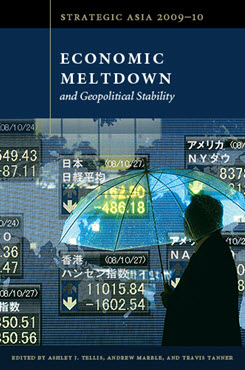China and the International Financial Crisis
This chapter examines how the global financial crisis has affected China’s economy and geopolitical status.
EXECUTIVE SUMMARY
This chapter examines how the global financial crisis has affected China’s economy and geopolitical status.
MAIN ARGUMENT
The global economic crisis came to China as large scale lay-offs in construction preceded the collapse of exports, which triggered massive additional unemployment. China’s strong fiscal situation, low leverage, and relatively strong banks left ample room, however, for aggressive fiscal and monetary stimulus to beat the recession. China is emerging from the crisis sooner than any other large economy, and the crisis will probably accelerate China’s rise and expand China’s global leadership role in the economic and financial arena.
POLICY IMPLICATIONS
- The U.S. must continue to accommodate China as a rising power, in part by intensifying and expanding the bilateral dialogue with China, as agreed upon between Presidents Obama and Hu at the April G-20 summit.
- An informal G-2 relationship to provide leadership on global governance issues such as climate and energy should be promoted, but not at the expense of other international forums for consultation and decisionmaking.
- The U.S. must understand that the crisis has damaged its credibility in the financial arena and that emerging economies such as China will intensify their search for alternative models of finance while promoting South-South economic relations.
- The U.S. has to both rebalance its own economy by keeping consumption growth below GDP growth for an extended period and strengthen its international competiveness by improving infrastructure, public education, health care, energy efficiency, social security, fiscal responsibility at all levels of government, and financial regulation.
Strategic Asia
The Strategic Asia annual edited volume incorporates assessments of economic, political, and military trends and focuses on the strategies that drive policy in the region. Learn more about Strategic Asia.


